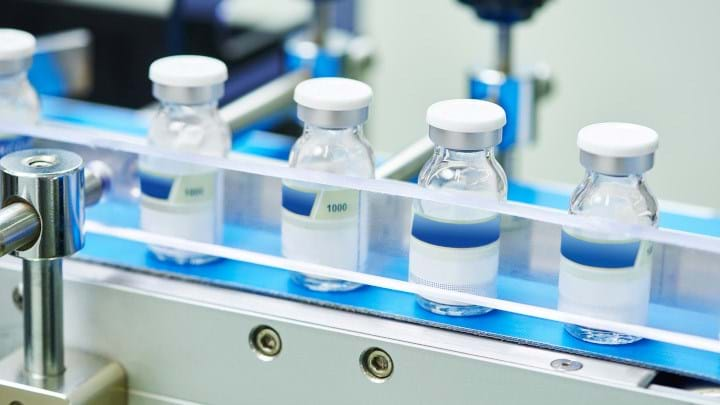Toxic cough syrups linked to child deaths in India spark global health warnings

PRODUCTION at three pharmaceutical manufacturing sites in India has been suspended after state authorities confirmed at least 24 children had died after taking contaminated cough syrups.
India’s Central Drugs Standard Control Organisation (CDSCO) has recalled all bottles containing contaminated syrups, while a doctor and a pharmaceutical company owner have been arrested.
The World Health Organization (WHO) issued medical product alerts on Monday for Coldrif, Respifresh TR and ReLife cough syrups, batches of which had each been identified by the CDSCO last week as being contaminated with toxic diethylene glycol (DEG). Coldrif, made by Sresan Pharmaceutical in Tamil Nadu state, was by far the worst affected, with one batch from May 2025 containing nearly 50% DEG by mass. That is far greater than the 0.1% maximum allowed by Indian law. Meanwhile, a batch of Respifresh TR, made by Rednex Pharmaceutical in Gujarat state, contained just over 1% DEG contamination, while ReLife, made by Shape Pharma in Gujarat, contained 0.6%.
A fourth product, Dextromethorphan Hydrobromide cough syrup made by Kaysons Pharma, has also been linked to child sickness in India and has been recalled, although CDSCO testing has not identified DEG contamination.
DEG, an industrial antifreeze agent, is known to cause death through acute kidney injury, and is banned in many countries as an additive in medicines. Symptoms of DEG poisoning include abdominal pain, vomiting, diarrhoea, inability to pass urine, headaches and altered mental states.
In India, DEG is sometimes used as a cheap alternative to sweetening agents in children’s syrups. The CDSCO has not confirmed the exact source of the contamination in the three medicines, but an inspection of Sresan’s plant near Chennai earlier this month found the company had sourced industrial-grade propylene glycol, contaminated with DEG, from local chemical and paint sellers.
The CDSCO initially confirmed that a number of children in Chhindwara in Madhya Pradesh state had died after taking cough syrup contaminated with DEG in late September, although reports had been mounting since the start of the month. So far, at least 24 children are thought to have died after taking contaminated cough syrup.
Last week, Sresan Pharmaceutical owner G Ranganathan was arrested by Madhya Pradesh police and charged with multiple offences, including culpable homicide not amounting to murder. Meanwhile, a doctor who prescribed the syrup, Praveen Soni, has been arrested on suspicion of clinical negligence. Mohan Yadav, leader of Madhya Pradesh, has promised that “the guilty will not be spared at any cost”.
The CDSCO has said that no contaminated products have been exported from India, while WHO says there is currently no evidence of illegal exports. Nevertheless, WHO “encourages national regulatory authorities to consider targeted market surveillance, with particular attention to informal and unregulated supply chains where products may circulate undetected”. WHO is also advising regulators to “carefully evaluate the risks associated with any oral liquid medicines” made at Sresan, Rednex and Shape Pharma manufacturing plants since December 2024.
The US Food and Drug Administration confirmed last week that no contaminated products had been shipped from India to the US.
Not the first time
Sresan Pharmaceutical’s quality control appears to have been poor, according to Indian network ETV Bharat which reported that a recent inspection by the Tamil Nadu drug control department uncovered 39 critical and 325 major violations of the Indian Drugs and Cosmetics Act, including pest infestations, poor ventilation, open drains, broken equipment and unqualified staff.
However, the recent DEG contamination cases are not isolated. In early 2023, WHO urged global action after more than 300 deaths were linked to medicines contaminated with diethylene glycol (DEG) and ethylene glycol (EG) within just four months. Most victims were children under five, including 89 in The Gambia and Uzbekistan, where the contaminated drugs were produced by Indian manufacturers. Of the nine warnings WHO has issued about contaminated cough syrups in the last three years, five have involved products made in India.
Recent Editions
Catch up on the latest news, views and jobs from The Chemical Engineer. Below are the four latest issues. View a wider selection of the archive from within the Magazine section of this site.




